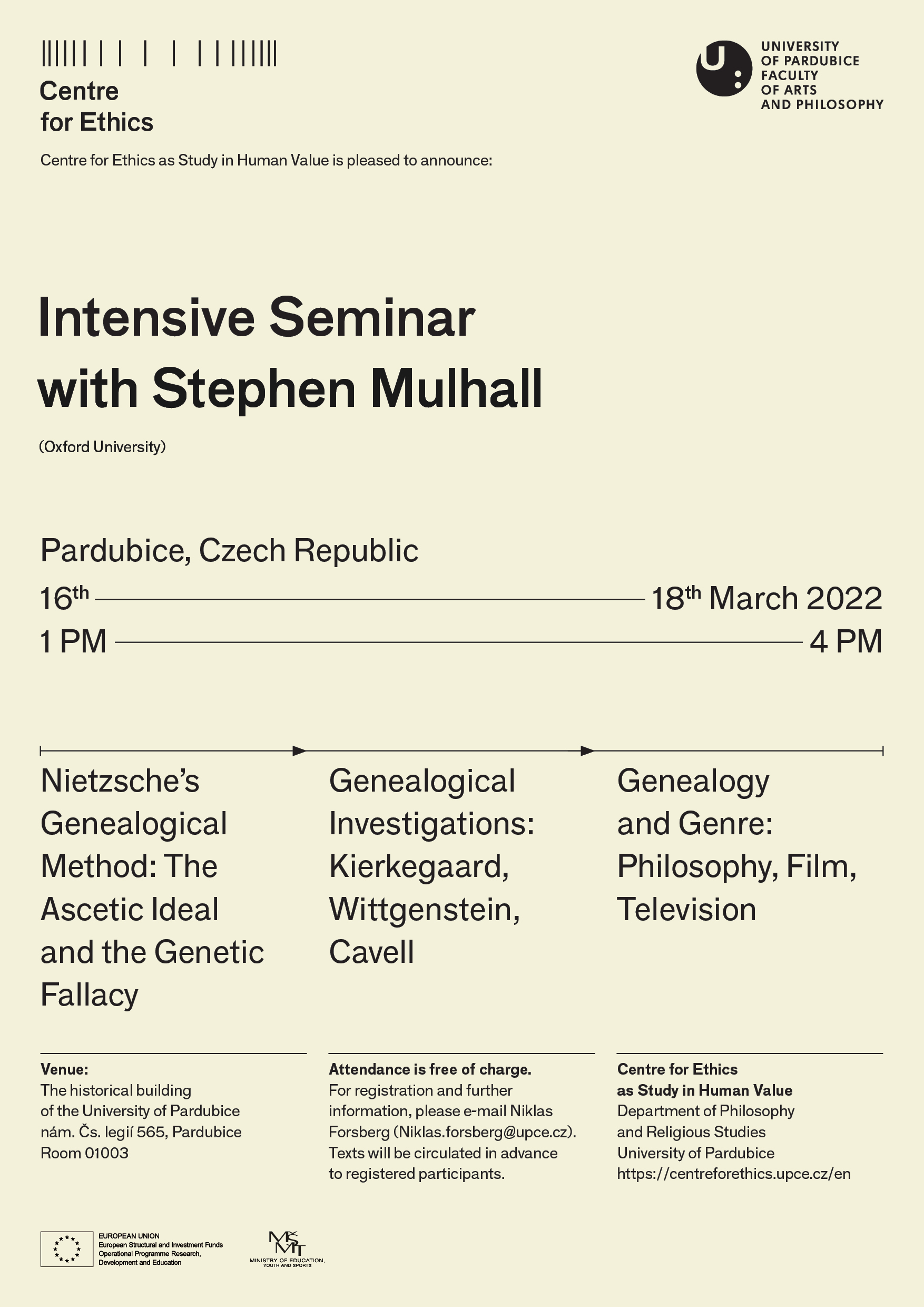Our new Marie-Sklodovska-Curie fellow, Silvia Caprioglio Panizza has written an interesting blog analysing the practice of name giving in our societies. You can read it HERE.
Search
In December last year, I changed my last name. Or rather, I ‘augmented’ it, by including my mother’s surname before my father’s—the latter, given to me at birth by default: legal, cultural, political, moral, and practical default.
Whenever we do things by default, there’s also a reason to be vigilant. In the unexamined, injustices can thrive. Of course, unexamined habits are useful and indeed necessary. But it doesn’t hurt to bring them to our attention from time to time. If they’re good, they can slip back into what we do not question.
The Ethics of Home: Patriotism, Cosmopolitanism and Alienation
An interdisciplinary conference organized by Centre for Ethics as Study in Human Value, University of Pardubice
June 1-3, 2022, Pardubice, Czech Republic
Date: 1st - 3rd June 2022
Conference Venue: Historical building of University of Pardubice, Room 03004
Call for Abstracts
Contextual Ethics III: Empirical Input in Ethics
May 23-24, 2022
Uppsala University
A workshop organized by the Contextual Ethics network funded by NOS-HS, in collaboration with Engaging Vulnerability, Uppsala University and Centre for Ethics, University of Pardubice.
In our latest blog, Olli Lagerspetz writes about the dangers of analyzing our history.
You can read it HERE.
The Russian war on Ukraine woke us up to the fact that most of us are historically illiterate about most of the world, most of the time. Was Ukraine a creation of Lenin, as Mr Putin would have it? As one commentator put it, with an average audience you can easily string together a narrative, strew in some correct historical facts, leave out others just as correct and salient, and have everyone nodding at your profound expertise. My philosophical question is, what do we want to do with history? Can we use it as a force for the good and avoid the toxic uses?
Our new member, Laura Candiotto, has published a blog on the right to philosophy. You can read it HERE.
The capacity to aspire is a future-oriented cultural capacity
Arjun Appadurai
If this is the age of despair, namely that time in which it is not possible to glimpse a future, either personal or collective, due to the disappointments about corrupt politics and systemic issues such as the climate crisis, then the philosophy of the third millennium should take on the task of resisting it, envisaging horizons of freedom.
Application deadline: 30 April 2022
The Centre for Ethics as Study in Human Value and the Department of Philosophy and Religious Studies, University of Pardubice, welcome applications to a newly accredited study in English:
Master’s Programme in Ethics and Political Philosophy
Application deadline: 30 April 2022
Webinar: 10 March 2022, 2 pm CET, Zoom link
- « první
- ‹ předchozí
- …
- 7
- 8
- 9
- 10
- 11
- 12
- 13
- 14
- 15
- …
- následující ›
- poslední »


